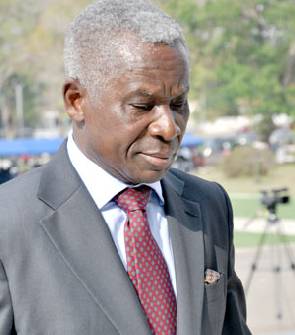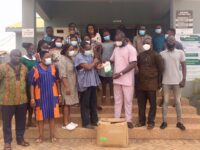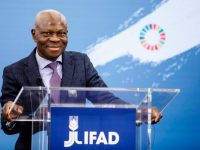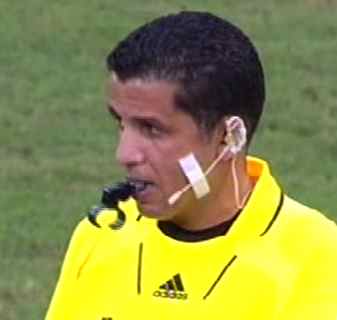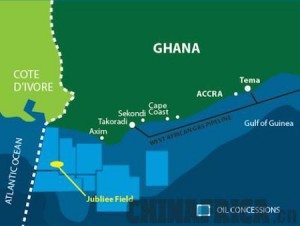 Veteran journalist Abdul Malik Kweku Baako wants the Navy to move in to protect Ghana’s territorial waters over the disputed oil-rich C-100 region because the Ivorian authorities are not interested in a peaceful solution.
Veteran journalist Abdul Malik Kweku Baako wants the Navy to move in to protect Ghana’s territorial waters over the disputed oil-rich C-100 region because the Ivorian authorities are not interested in a peaceful solution.
Alarmed by Ivory Coast’s changing and “insincere” stance over a disputed territory, the Editor-In-Chief of the New Crusading Guide newspaper feels “a hunch” that “we ought to begin to defend our territorial seas.”
In a high profile diplomatic maritime dispute, Ghana has initiated arbitration proceedings under the UN Convention on the Law of the Sea (UNCLOS) after nearly four years of negotiations failed to resolve the dispute between it and Ivory Coast.
According to the former Minister for Lands and Natural Resources, Alhaji Inusah Fuseini, Ghana and Ivory Coast had exchanged maps of coastal lines and held as many as 10 meetings in a bid to resolve the dispute over the territory that holds about 2 billion barrels of oil and 1.2 trillion cubic feet of gas.
The dispute began in 2010 after oil was discovered in the Dzata-1 deepwater-well, which Ivory Coast is claiming infringes on their territorial independence.
But Attorney-General and Minister of Justice Mrs Marietta Brew Appiah-Oppong has told the nation, Ghana has a good case.
Weighing into the discussion on Joy FM’s Saturday news analysis programme Newsfile, Kweku Baako noted, “the Ivoirians are displaying a certain level of insincerity.”
“They have been shifting the goal post…and it alarms me. They are not sincere. They are not seeking a solution”, he said.
He read out a letter from the Ivorian authorities threatening petroleum companies working in the disputed area. In the letter, the western neighbor pointed out that it is within their right to defend their territorial space – something they will not hesitate to do, if the companies do not do the ‘right’ thing by applying for a permit from Ivory Coast.
Tullow Oil reported that they had been asked in April 2010 to sign an agreement with Cote d’Ivoire’s Director General of Hydrocarbons and Petroci failing which they would be prevented from operating.
“It means one of these days, they could move in there to try and stop these companies,” Baako interpreted, urging, “let’s prepare ahead of time.”
Providing more technical details, Kwame Fordjour Mfodwo of the Ghana Maritime Boundary Secretariat explained that three methods used to determine the legitimate claim over a territory in the sea goes to favour Ghana.
He mentioned that the first determinant is equidistance, then meridian method and the bi-sector method.
The Ivorian authorities learning that the first determinant, which is equidistance, does not favour them have shifted to the last determinant.
He noted that the Ivorian authorities are also bound according to their own 1977 Ivorian law, to use equidistance to determine a territorial claim.
In effect, despite failed negotiations to secure the territory in Ghana’s favour, sending the case to international arbitration will only be asking international community “to do for us, what we have not been able to do for ourselves”, Mr. Mfodwo asserted.

